As we battle obesity and a whole host of chronic diseases linked to our diet – the food industry continues to mislead us, exploiting popular misconceptions to mask harmful ingredients in their products. Here are just a few of many supposedly healthy foods – that damage our health.
Many of these are sold with misleading claims about their health benefits but have instead been found to disrupt our gut bacteria – the delicate ecosystem of bacteria and microbes that keeps us lean and healthy.
1. Fruit Juices
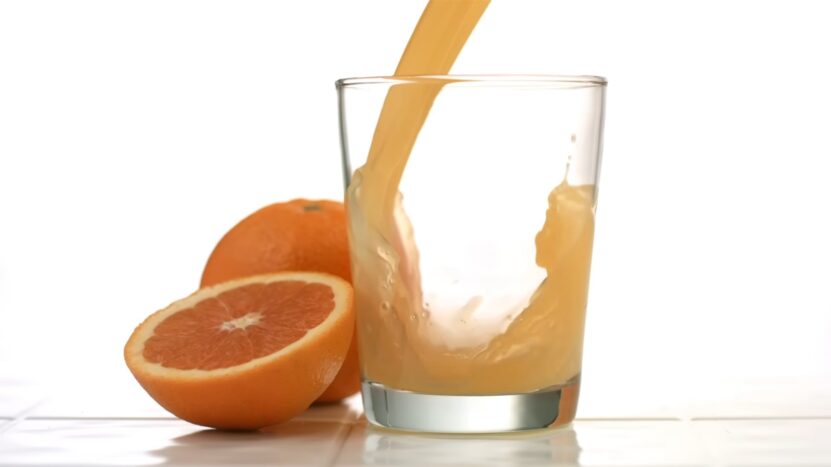
While rich in vitamin C, fruit juices are essentially sugar and water after all the fiber has been stripped out – and that’s before the food industry starts tampering and adding further sugar and flavorings.
Now in modest amounts pure fruit juices won’t do too much harm – but when drank in large quantities or on an empty stomach – which is so often the case as a staple breakfast drink – they can do a great deal of damage, flooding our liver with sugar and contributing to obesity, insulin resistance and fatty liver disease.
2. Low Fat or Fat-Free Anything
Fat got a bad name – as a result of dodgy science and lobbying funded by the sugar industry in the 1960s and 70s. Not all fat is bad and certainly not to the extent previously thought.
Some types of fats are in fact key to our health and while fat is more calorie-dense than other foods, sugar can be much more harmful.
Why Avoid Low-Fat Food?
When you see fat-free or low-fat on the label you can be sure that the product is highly processed. Fat carries a lot of flavor – so when fat is removed from foods, other additives are used in their place to compensate.
Additives such as sugars or artificial sweeteners, certain oils, flavor enhancers, and emulsifiers. All these ingredients do far more harm to our health – and have been shown to disrupt our gut bacteria and in the case of sugar, to overwhelm our liver causing significant damage when consumed in significant quantities.
3. Diet Soft Drinks
If sugar is so bad, then surely diet soft drinks – free of sugar and calories – must be a healthy alternative. Wrong – artificial sweeteners are now thought to be as bad or worse than the sugar they replace.
In a recent review of 37 studies into the effects of artificial sweeteners on weight loss and health, researchers tracked 400,000 people over 10 years and found that those who consumed high levels of artificial sweeteners in their foods were far more likely to gain weight or become obese, develop diabetes or have heart disease.
In another study at the Weizmann Institute of Science, Israel when researchers examined the effect of artificial sweeteners on the gut microbiome – they found significant changes as a result – including a reduction of beneficial strains of bacteria and an increase in harmful strains associated with obesity, metabolic disease, and diabetes.
4. Light/Low Calorie Anything

Watch out for anything with the words light, lite, or low calorie on the label – as with the low-fat labeling – this also means it is highly processed and sugars, fats, and other calories have been replaced with artificial sweeteners (see above) together with flavor enhancers, preservatives, and emulsifiers.
Preservatives and Emulsifiers
These additives are extremely common – particularly in anything that comes in a packet or a jar – added to extend the shelf life and kill bacteria – which is unfortunately also what researchers now believe they do to our gut bacteria
Some major studies have shown how both preservatives and emulsifiers disrupt the makeup of our gut bacteria and disrupt the protective mucous layer that shields our intestinal tract, leading to inflammation and a leaky gut.
5. Flavoured Yoghurts
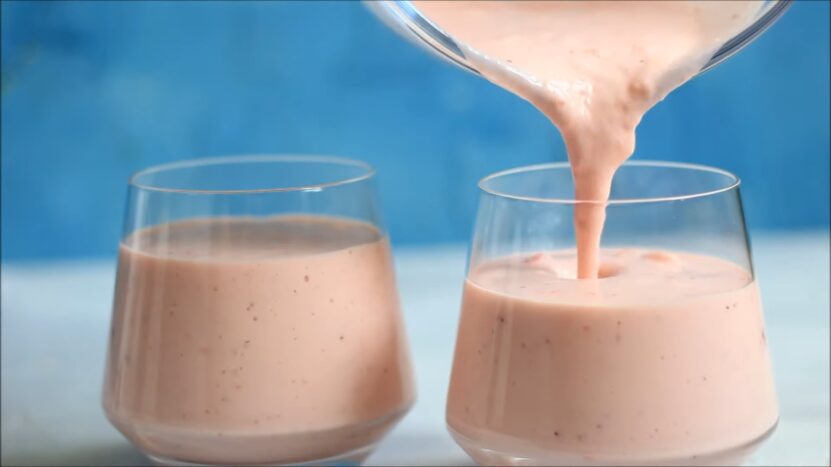
Yogurt has long been considered a staple health food – packed with probiotics and associated with the longevity of the Greeks and the Mediterranean diet. Only when you browse the shelves of your local store, very few yogurts on offer contain any live cultures – most have since been pasteurized – while many flavored yogurts contain more than 10g of sugar per 100g.
Now if you try to avoid the sugar and choose a low-calorie flavored yogurt – you’re probably swapping sugar for artificial sweeteners – which are highly disruptive to the makeup of our gut bacteria – quite the opposite of the health claims!
Yogurt is a wonderful product – so long as you choose a natural plain variety free from additives – that you can always sweeten yourself.
6. Margarine & Spreads
Margarine is another highly processed food that is much more harmful than the food it was designed to replace – butter. Butter from grass-fed dairy cows is good for us when consumed in moderation, but it became victimized by the ant-fat ideology of the 1970s and 80s.
Margarines was originally invented as a poor man’s butter that could last. It was made from several ingredients – including hydrogenated plant matter and more recently from refined vegetable oils such as sunflower and palm oil.
These processing results in high quantities of trans fats – which have been associated with a 34% increase in death, a 28% increased risk of coronary heart disease, and a 21% increase in the risk of cardiovascular disease.
Butter meanwhile – vilified for its saturated fat content has since been pardoned; based on the latest research there is no clear association between higher intake of saturated fats and death for any reason, whether coronary heart disease, cardiovascular disease, strokes, or diabetes.
7. Sports & Health Drinks
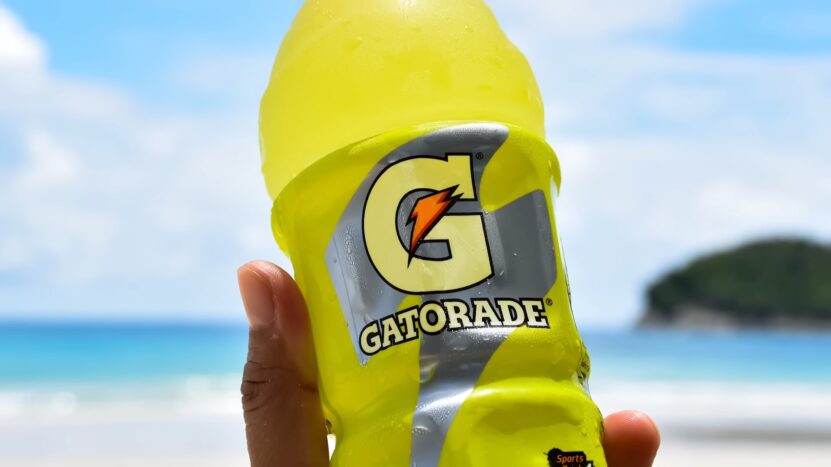
Thanks to powerful marketing and the direct association between sport and health – it’s no surprise that many of us believe a sports drink is a healthy way to replenish lost fluids, salts, and energy. In fact, they are a little better than a soda – with most sports, health, and energy drinks containing as much as two-thirds the sugar of normal soft drinks as well as artificial flavors and colorings.
Even the vitamins, electrolytes, or salts that much of their marketing relies on, most of us don’t need so they are largely unnecessary.
8. Breakfast Cereals
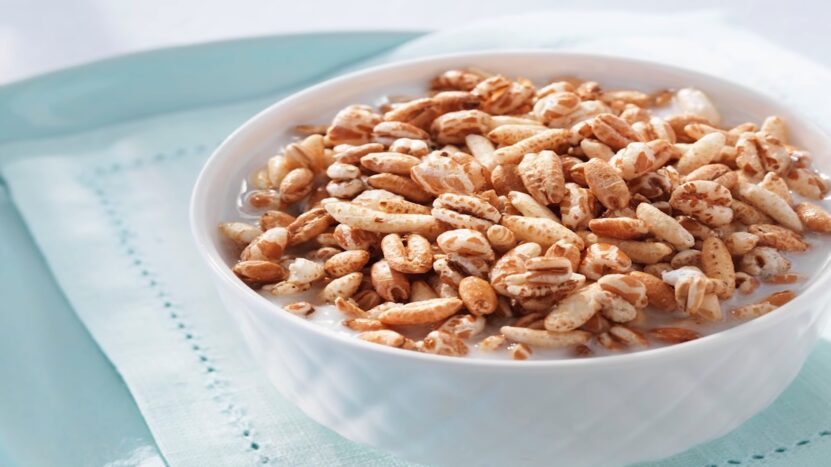
Breakfast cereals are another example of processed foods – with all sorts of misleading health claims to mask the harm. High in sugar, flavorings, and colorings and made from refined starch – they lack fiber – Kids’ breakfast cereals, in particular, are the worst offenders.
Whether you are for or against or indifferent to GMOs – the vast majority of breakfast cereals are made from them. However, more alarmingly are the levels of pesticides and herbicide residues in breakfast cereals – such as glyphosate – linked with the GMO ingredients.
These herbicides act as endocrine disrupters that interfere with our hormones as well as disrupt our gut bacteria. Even ‘healthy’ cereals such as muesli have been found to have high levels of these pesticide contaminants.
9. Any Foods with Health Claims
Last of all – be very wary of anything advertised for its health benefits – you probably should steer clear. Does that seem a bit harsh? Not really – although you will be surprised by how many foods it cuts out.
Anything with health claims will be processed food – made with multiple refined ingredients and in most cases harmful additives for a profit. The health claims – designed to attract your attention and often divert it from product shortcomings- are often spurious or misleading.
These are just a few of our favorite and essentially meaningless claims that are often deflecting attention from other harmful chemicals and toxins.
FAQ
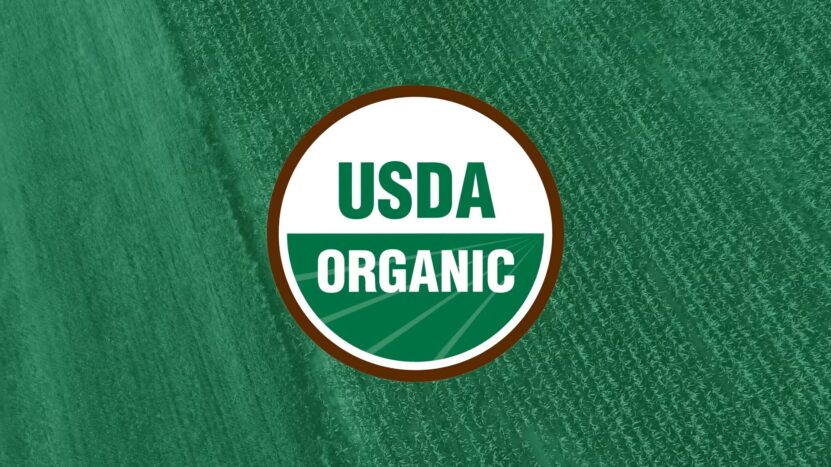
Are there any reliable certifications or labels that indicate a genuinely healthy product?
Yes, labels such as “USDA Organic” or “Non-GMO Project Verified” can be more trustworthy, but it’s always essential to read the ingredient list and understand the product’s nutritional content.
How can I ensure that the fruit juices I buy are healthy?
Opt for 100% pure fruit juices without added sugars or preservatives. Better yet, make fresh juice at home or consume whole fruits for added fiber.
Are there any genuinely healthy breakfast cereals?
Yes, look for cereals with whole grains as the primary ingredient, low sugar content, and without artificial additives. Brands that prioritize organic and non-GMO ingredients can also be better choices.
How can I identify artificial sweeteners in products?
Check the ingredient list for names like aspartame, saccharin, sucralose, and acesulfame potassium.
Are there any natural alternatives to margarine?
Yes, butter from grass-fed cows or plant-based spreads made from natural oils like olive or avocado can be healthier alternatives.
Final Words
In a world where marketing often overshadows truth, it’s crucial to be an informed consumer. While many products parade as “healthy,” it’s essential to delve deeper, read labels, and understand what truly constitutes a nutritious choice.
Prioritize whole, unprocessed foods and be wary of misleading health claims. Your health is worth the extra effort.
